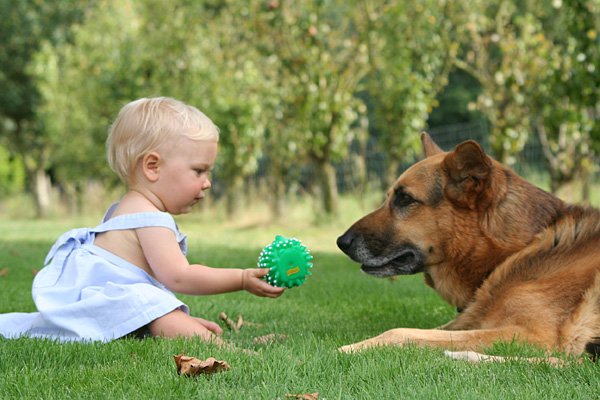
Are you a new puppy owner? Or are you just about to buy that pup? Either way, now is the time to think about how you will care for your puppy's health.
By following these 5 handy tips, you'll be setting your puppy up for a long and healthy life!
1. Get to know your vet
Your first step in caring for your new puppy should be to get in contact with your local vet. Get their address and contact details, and make sure you have their after hours number in case of emergencies. Your vet can also give you advice about any special dog health care your puppy might need in your area--for example, council regulations about vaccinations or de-sexing, or particular diseases or parasites in the area.
2. Feeding your puppy
Ask your breeder what your puppy has been eating and try to get the same food--at least for the first week or so. If you got your puppy from a shelter or council pound, the staff will be able to tell you what food they were using.
By using the same food at first, you will avoid upsetting your puppy's tummy with unfamiliar food. Then you can either keep feeding the same puppy food or do some research and find a high quality food designed specifically for puppies.
3. Worming
Find out when your puppy was last wormed and when the next worming is due. Puppy worms are nasty parasites that can make your puppy very ill and your dog will need regular treatment throughout its life to keep these pests away.
4. Vaccinations
There are a number of fatal dog illnesses that can be avoided by regularly vaccinating your dog. Find out when your puppy last had vaccinations and when the next ones are due.
Puppies usually receive their first vaccination at 6-8 weeks of age but they need booster shots about every four weeks until they are 4-5 months old. After that, dogs are generally vaccinated yearly.
5. Get your puppy spayed or neutered
Unless you intend to become a registered breeder--and do make sure you've done plenty of research about being a registered breeder before you take that step!--you should get your puppy de-sexed. It will reduce your dog's chances of getting several nasty cancers and other diseases later in life, and reduces the number of unwanted dogs in council pounds and animal shelters.
Some councils may give discounts on dog registration fees for de-sexed dogs. Some councils have strict regulations that mandate de-sexing of dogs at an early age unless the owner has applied for permission to become a registered breeder.
Bringing a new puppy home is a time of great excitement for any family. Now you'll want to make sure your puppy has the best chance of a long and healthy life by following these simple steps to new puppy care. Do make sure you contact your vet with any dog health questions. And may you and your new companion share many happy years together!
 Grooming Your Pony
Grooming Your Pon
Grooming Your Pony
Grooming Your Pon
 Yeast Allergies Affecting Dogs
Yeast Allergies A
Yeast Allergies Affecting Dogs
Yeast Allergies A
 Produce the servicing patched with amazing goat fence alternative
Produce the servicing patched with amazing goat fence alte
Produce the servicing patched with amazing goat fence alternative
Produce the servicing patched with amazing goat fence alte
 Provide Your Horse With Equine Supplements To Keep Him Healthy And Happy
Provide Your Horse With Equine Supplements To Keep Him Hea
Provide Your Horse With Equine Supplements To Keep Him Healthy And Happy
Provide Your Horse With Equine Supplements To Keep Him Hea
 Using Silent Whistles With Your Dog
Using Silent Whis
Using Silent Whistles With Your Dog
Using Silent Whis
Copyright © 2005-2016 Pet Information All Rights Reserved
Contact us: www162date@outlook.com